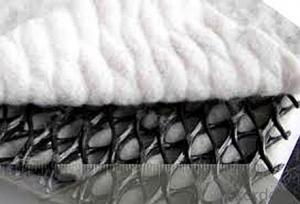Geotextile felt among other things has gained popularity in the construction as well as the environmental domain. The particular fabric is designed to offer a number of advantages that enhance stability and functionality in different projects. We will explore its uses, benefits, and how it impacts our environment.
Geotextile Felt: Amazing Stuff
Nonwoven geotextile felt is a kind of synthetic polymer fabric made from materials like polypropylene, polyester or polyethylene. It has been made with high tensile strength, strength to different weather conditions and durability in mind. Nonetheless, it is more than just a mere cloth.
Uses of Geotextile Felt
Civil engineering works are one of the key areas where geotextile felt comes handy. It may be used for soil stabilization, erosion control or separation between different kinds of materials so that they don’t mix up together. For instance in landscaping, geotextile felt can be found lining garden beds to improve drainage and support plant growth. Similarly on roads and highways it helps add strength to the base thus preventing cracks.
Eco-Friendly and Sustainable
The distinctness about geotextile felt is its eco-friendliness which makes it possible for recycling this material which can also be used for environmentally sensitive applications such as wetland restoration and slope protection works with this material supporting sustainability on two fronts; functionalism and planetary wellness.
Durability and Longevity
Another quality that sets geotextile felt apart from others is its durability. It can bear heavy loads, withstand UV degradation as well as maintain its original form over time meaning that projects built with this fabric have longer lifespan thus reducing the need for constant repair or replacement.
Installation and Maintenance
Fixing geotextile felt does not necessarily have to be a complicated process at all. It can be easily cut into size pieces then spread across a given space you are working on. This is because it is made from materials that pests cannot destroy and therefore does not rot away with time thus a great option for projects that will remain in place for a long duration.
Personal Touch: My Experience with Geotextile Felt
I once worked on a project where geotextile felt was used to stabilize slopes. Its ability to keep the soil in position and prevent erosion was simply amazing. It was a turning point for me in the project and I could not believe how strong and flexible this material could be.
Overcoming Challenges
However, geotextile felt has its own set of challenges despite its numerous benefits. For one, there are concerns around installation errors that lead to poor performance. However, these issues can be reduced through proper training according to the instructions during installation.
The Future of Geotextile Felt
The demand for geotextile felt is expected to rise as the world embraces more sustainable solutions in relation to environmental conservation. By providing an alternative that is longer-lasting, durable, less expensive and eco-friendly it might revolutionize construction and environmental projects going forward.
Conclusion
More than just material itself, geotextile felt represents human creativity as well as our commitment towards making tomorrow better than today. Its applications are wide spread; it’s advantageous for many reasons and impact on environment good. As we go further into researching and innovating with this material called “geotextile felts”, opportunities are endless. To create a stable and green world – let us take this fabric up now and integrate it into any project we have at hand!







